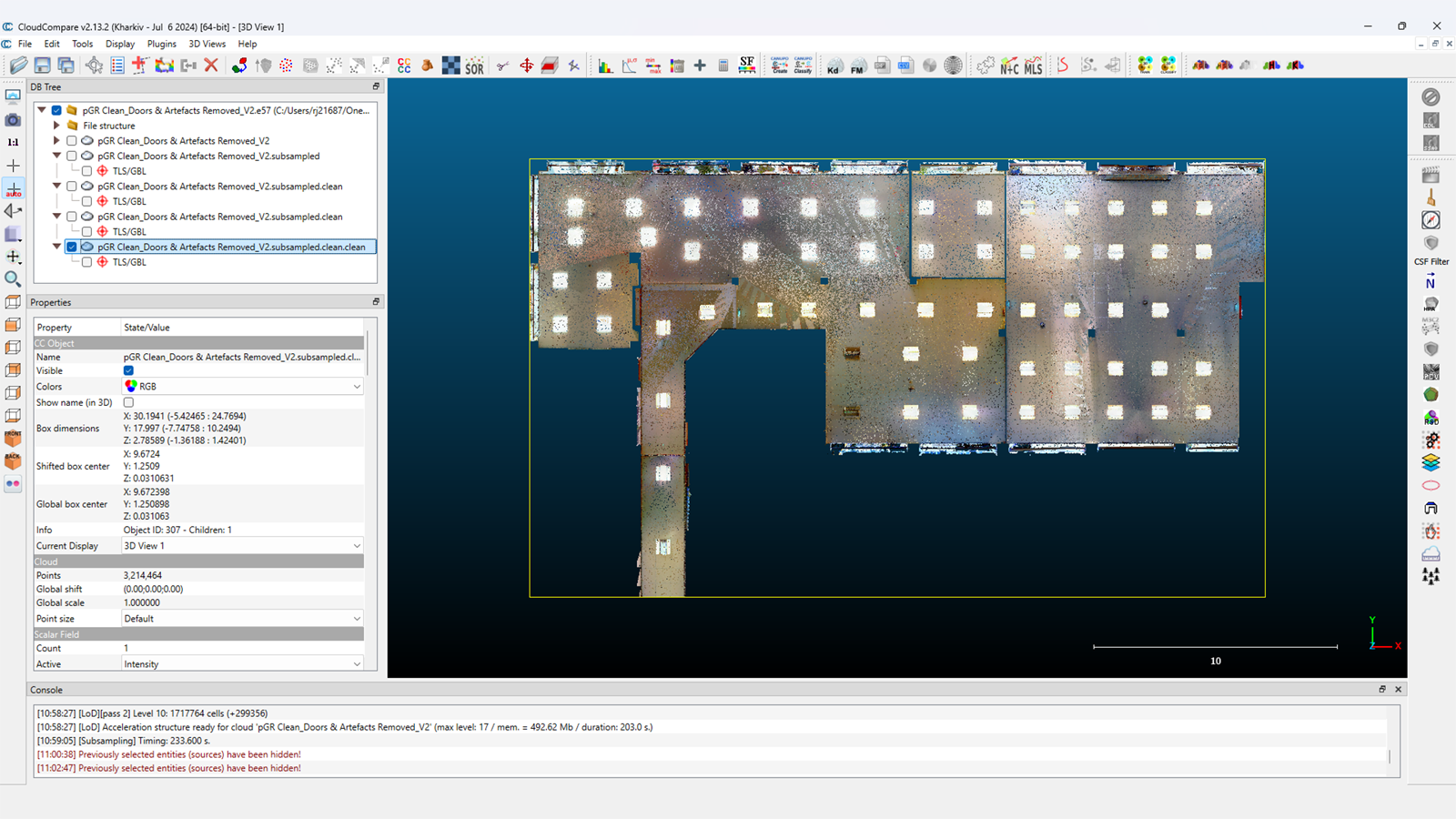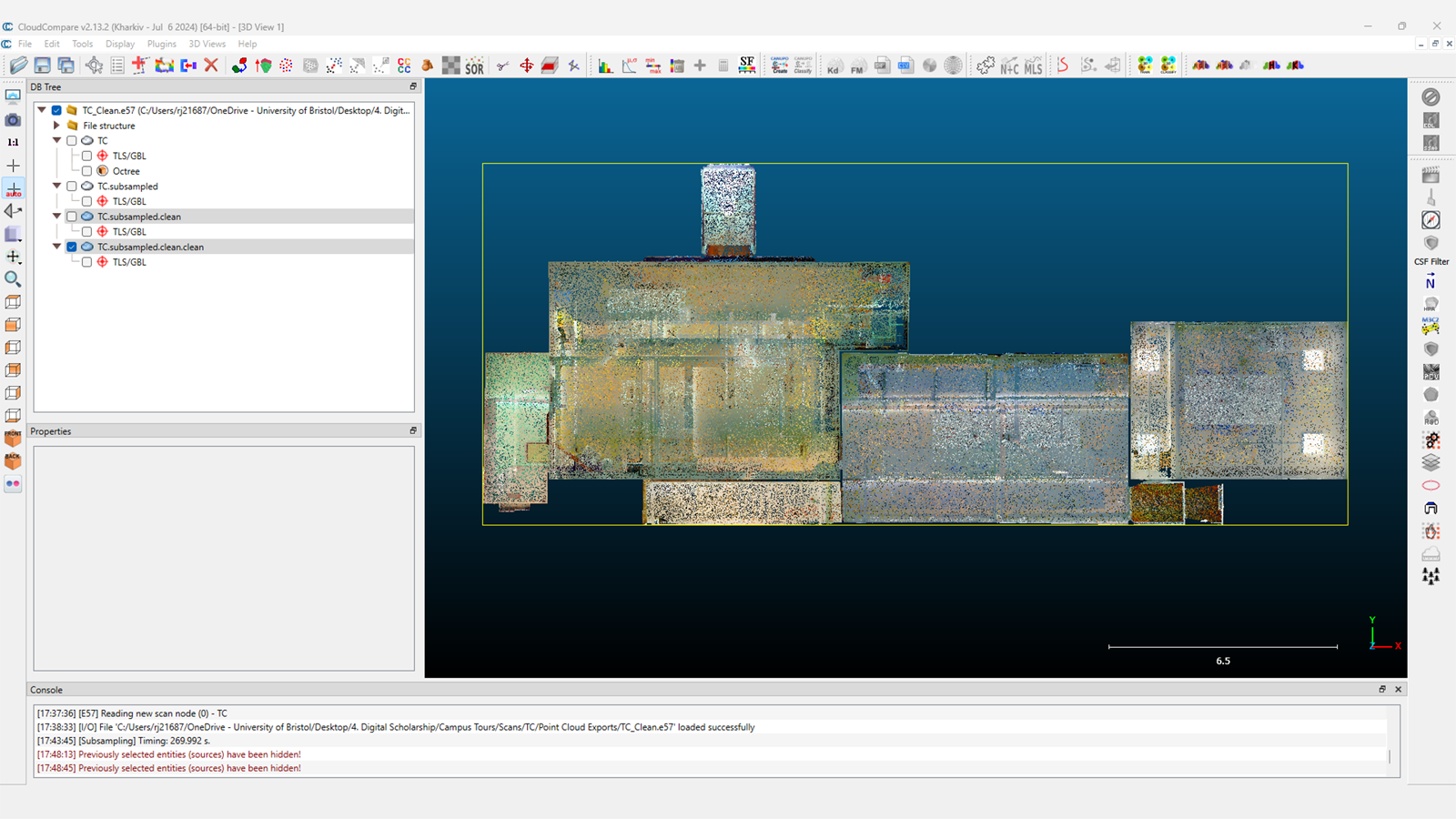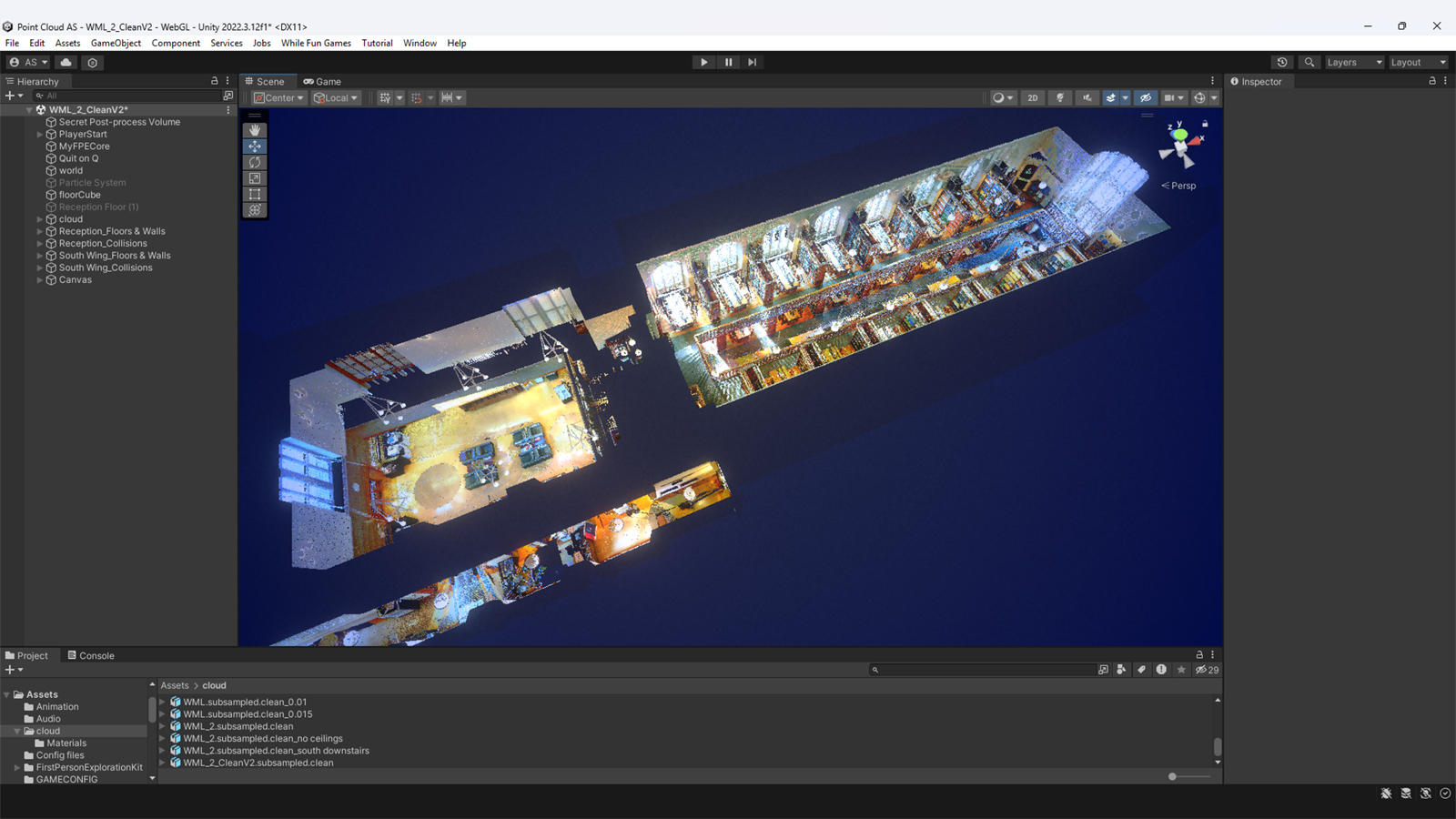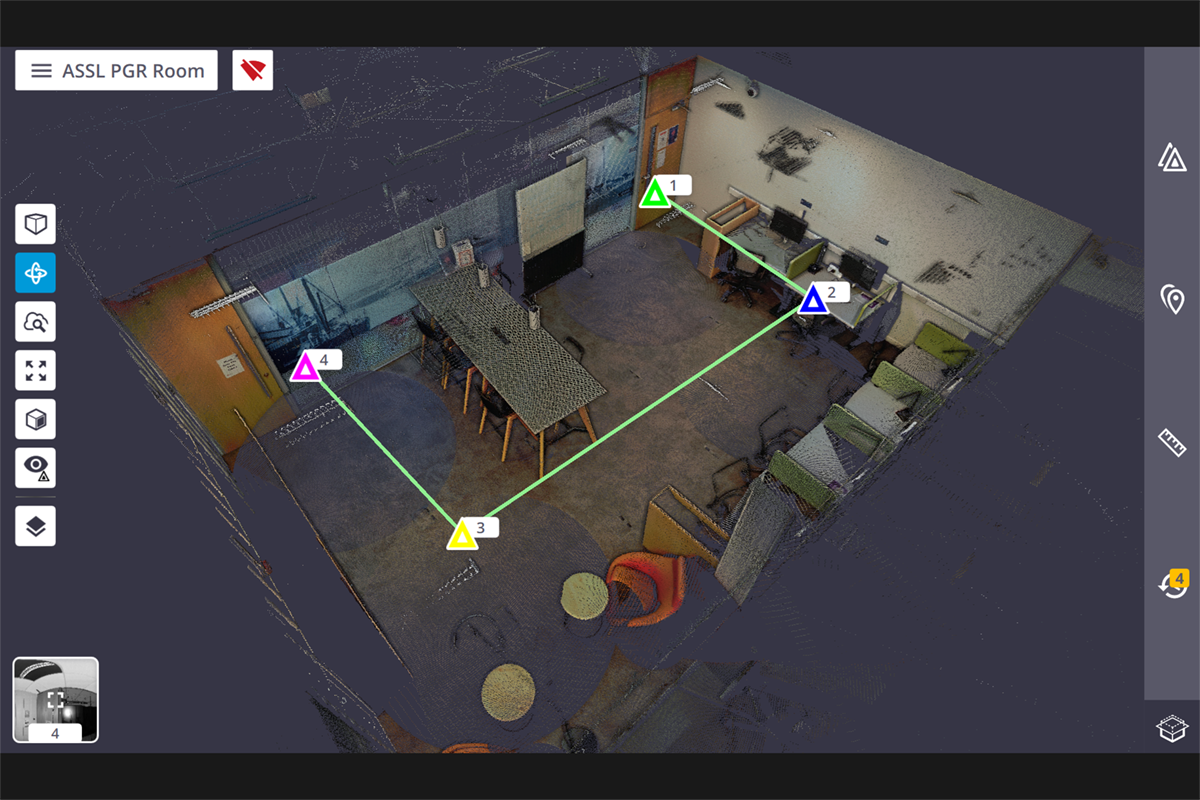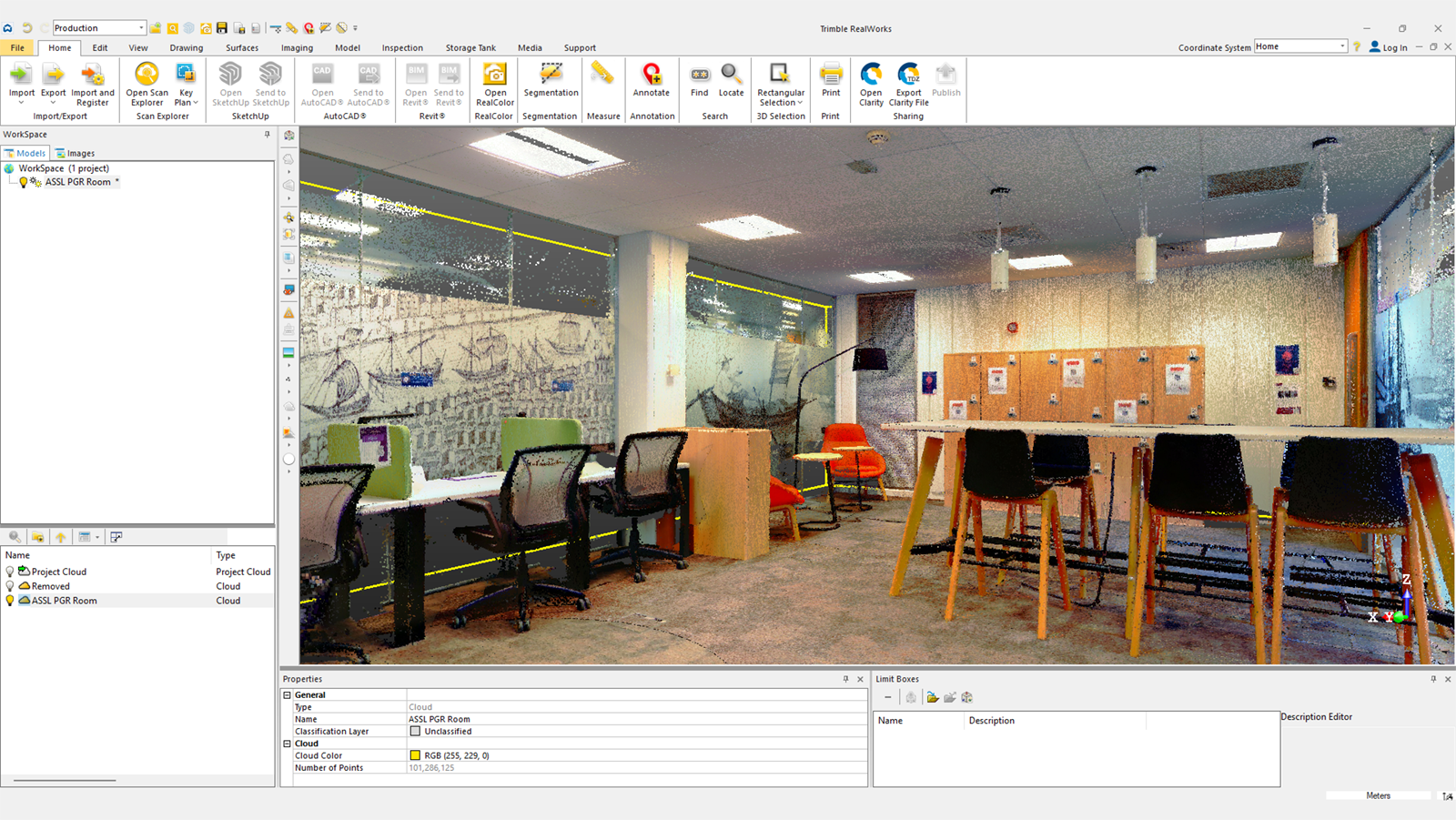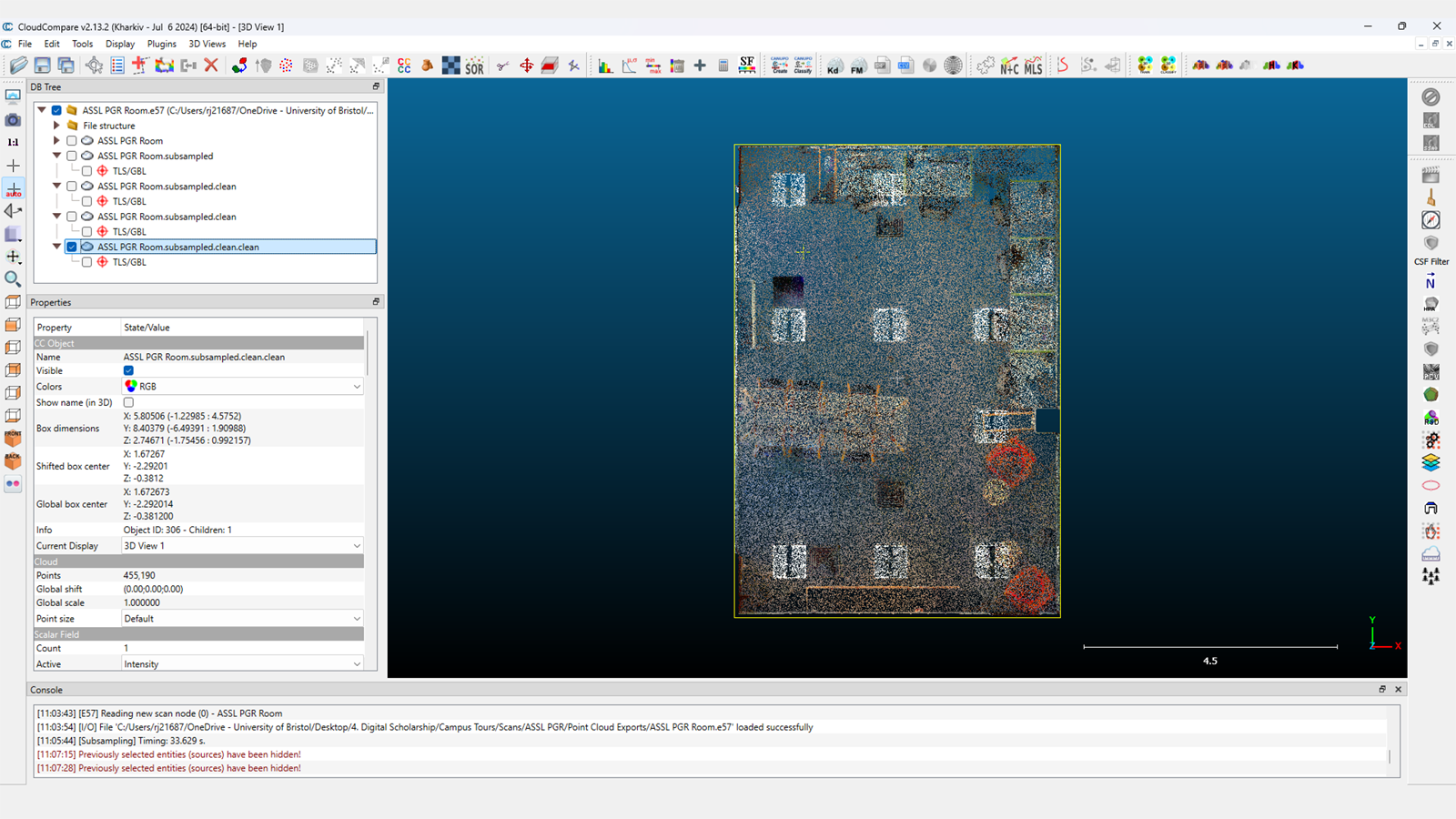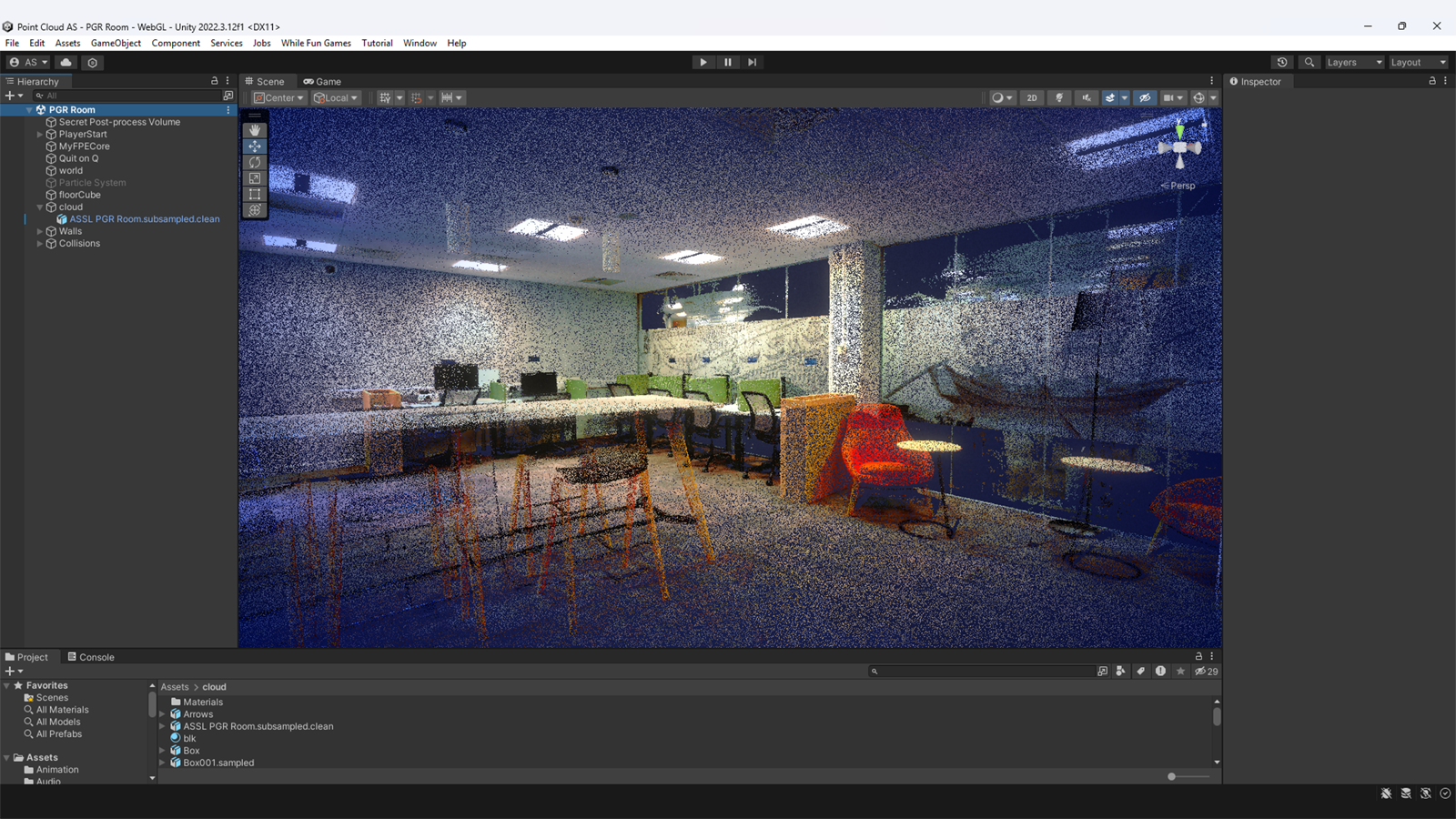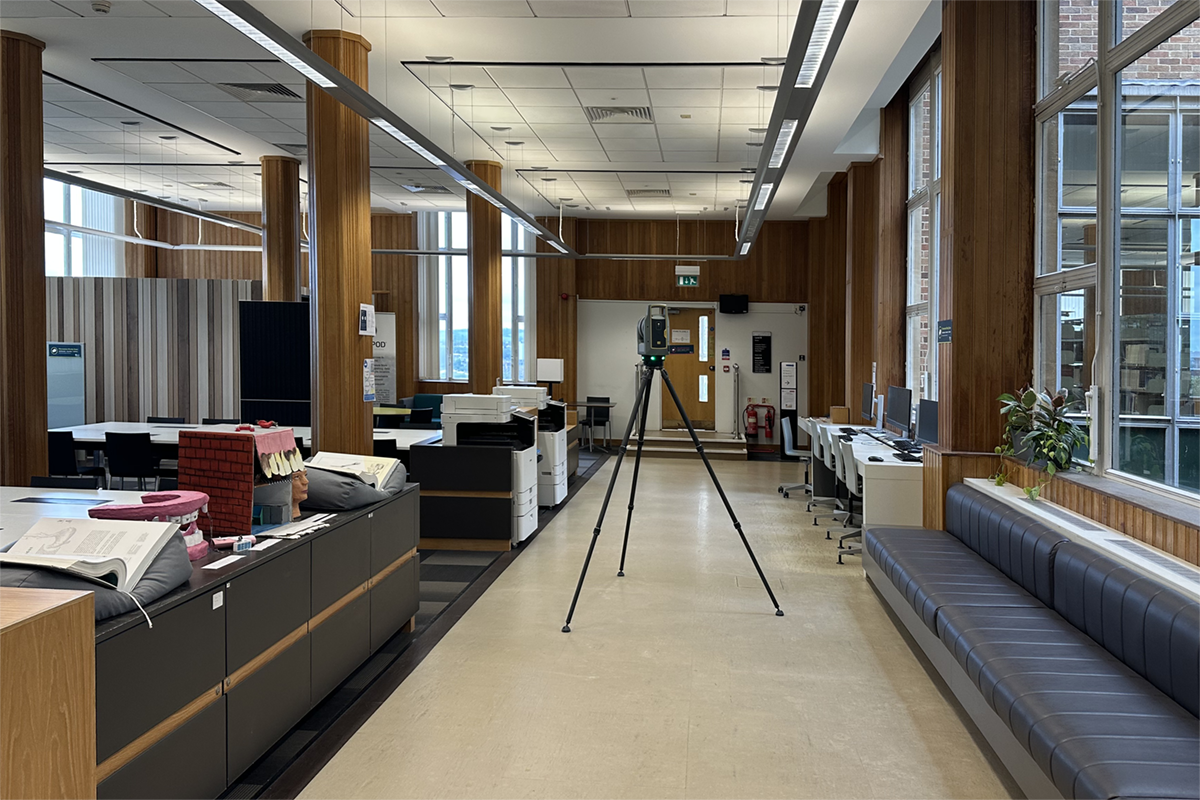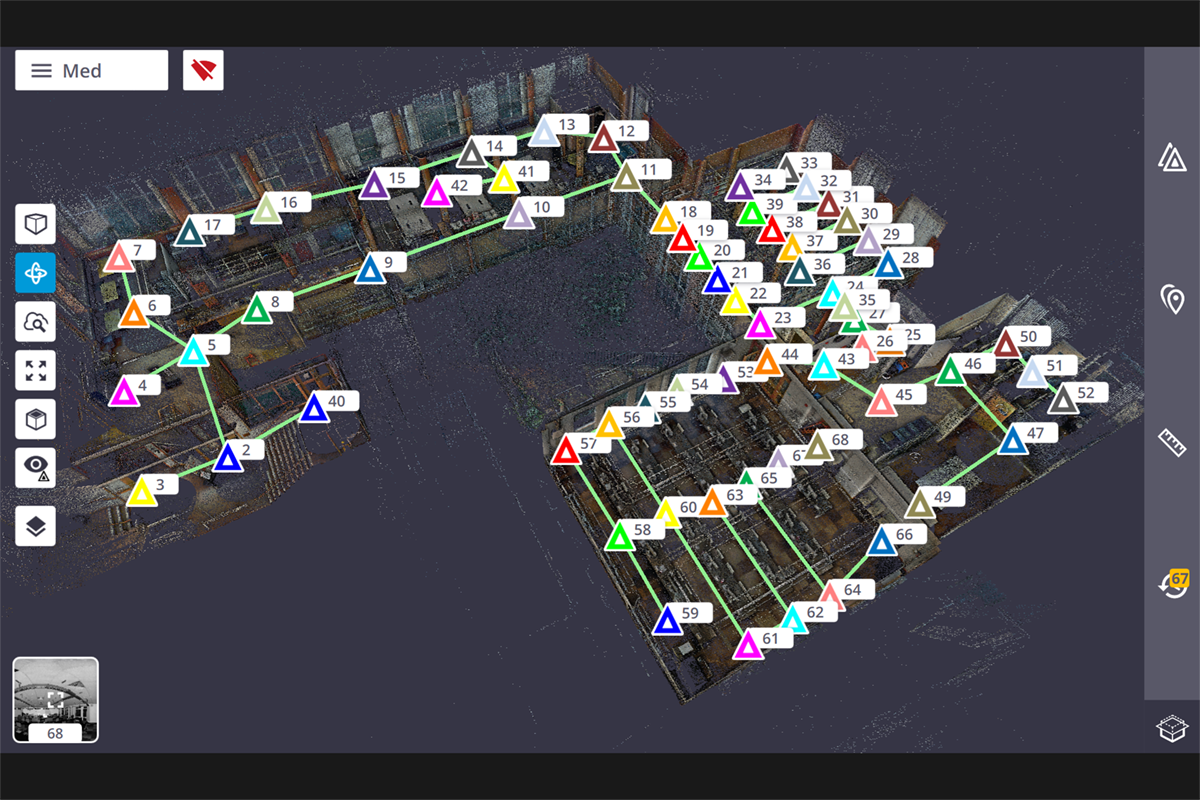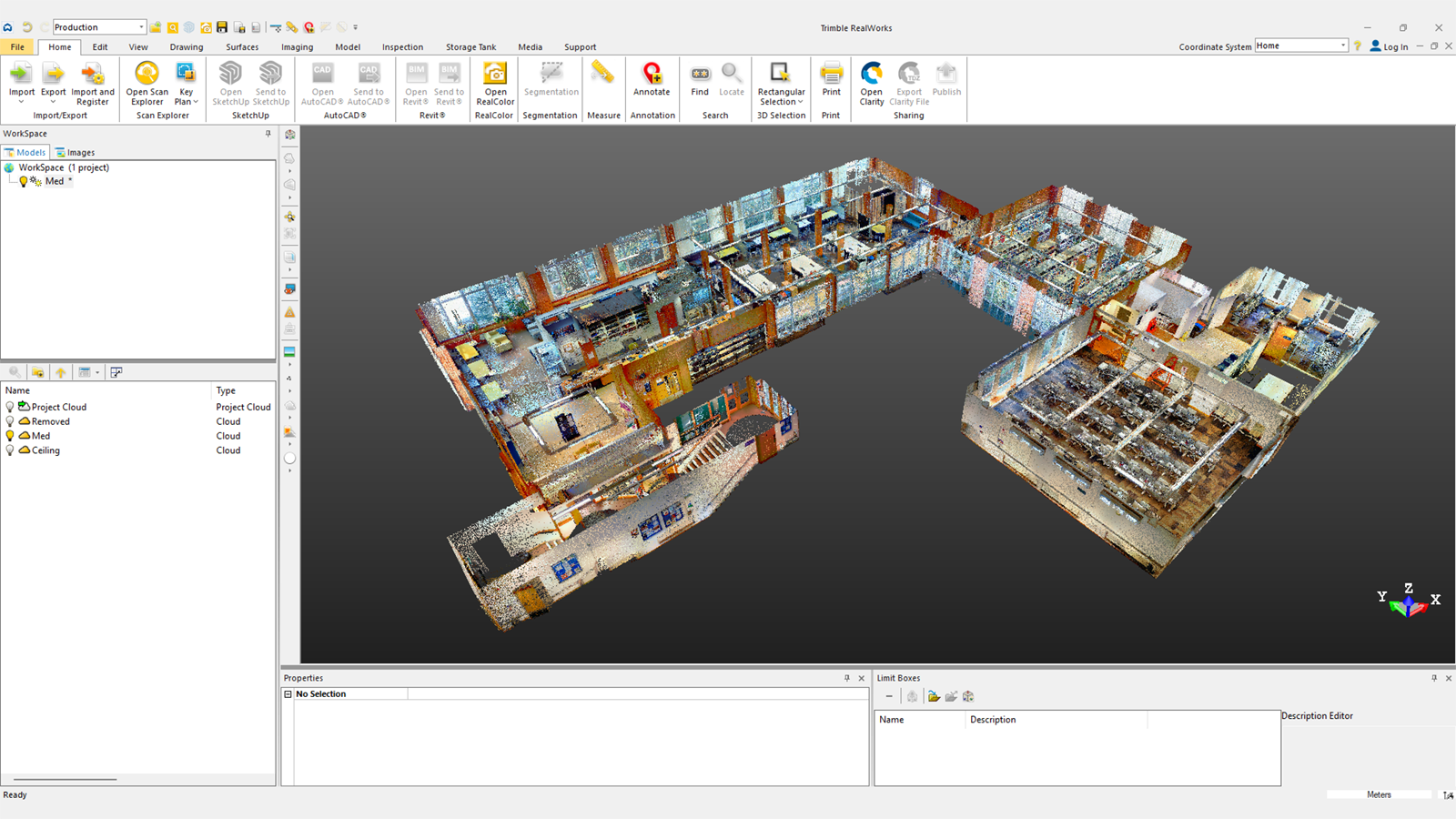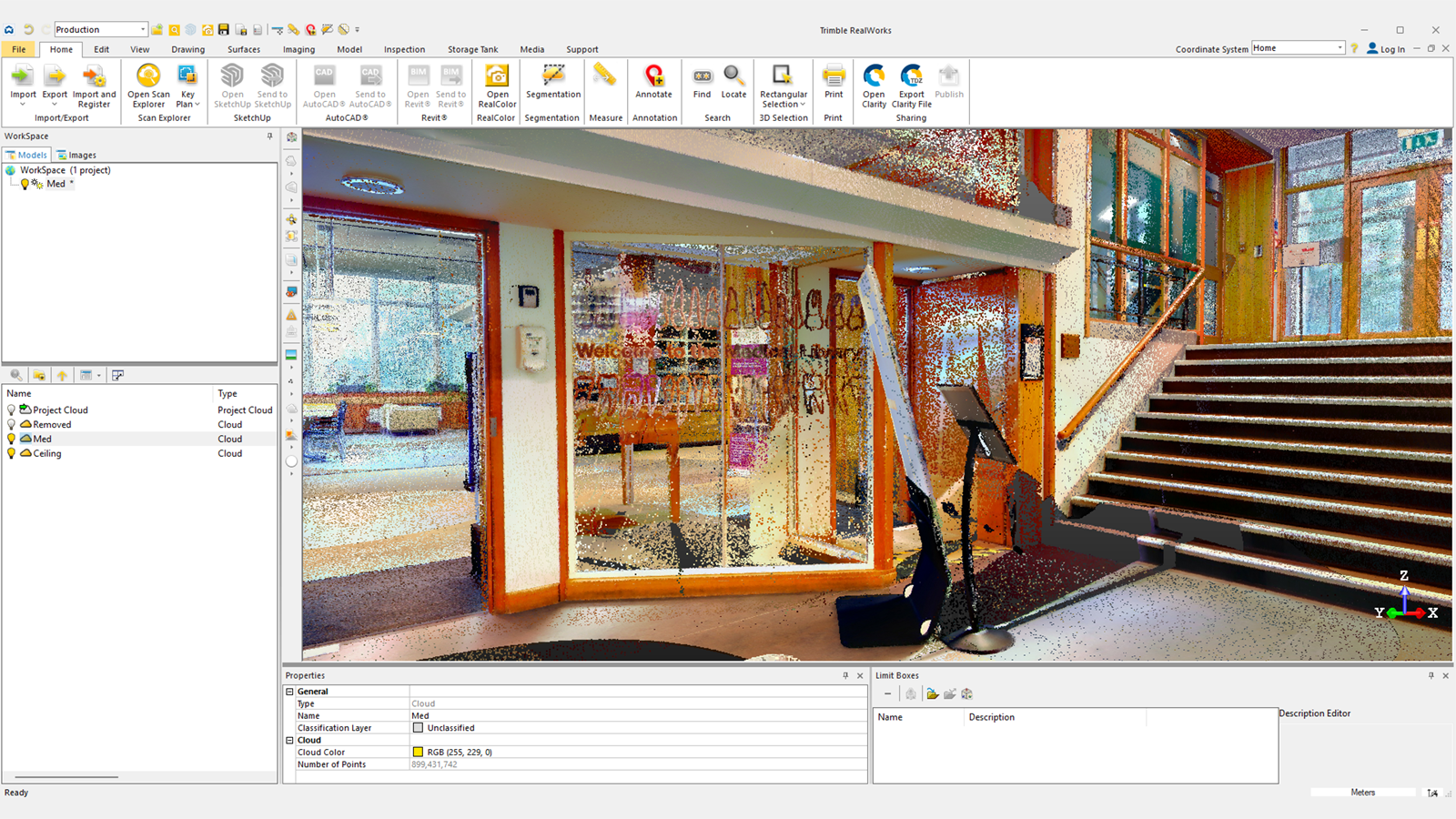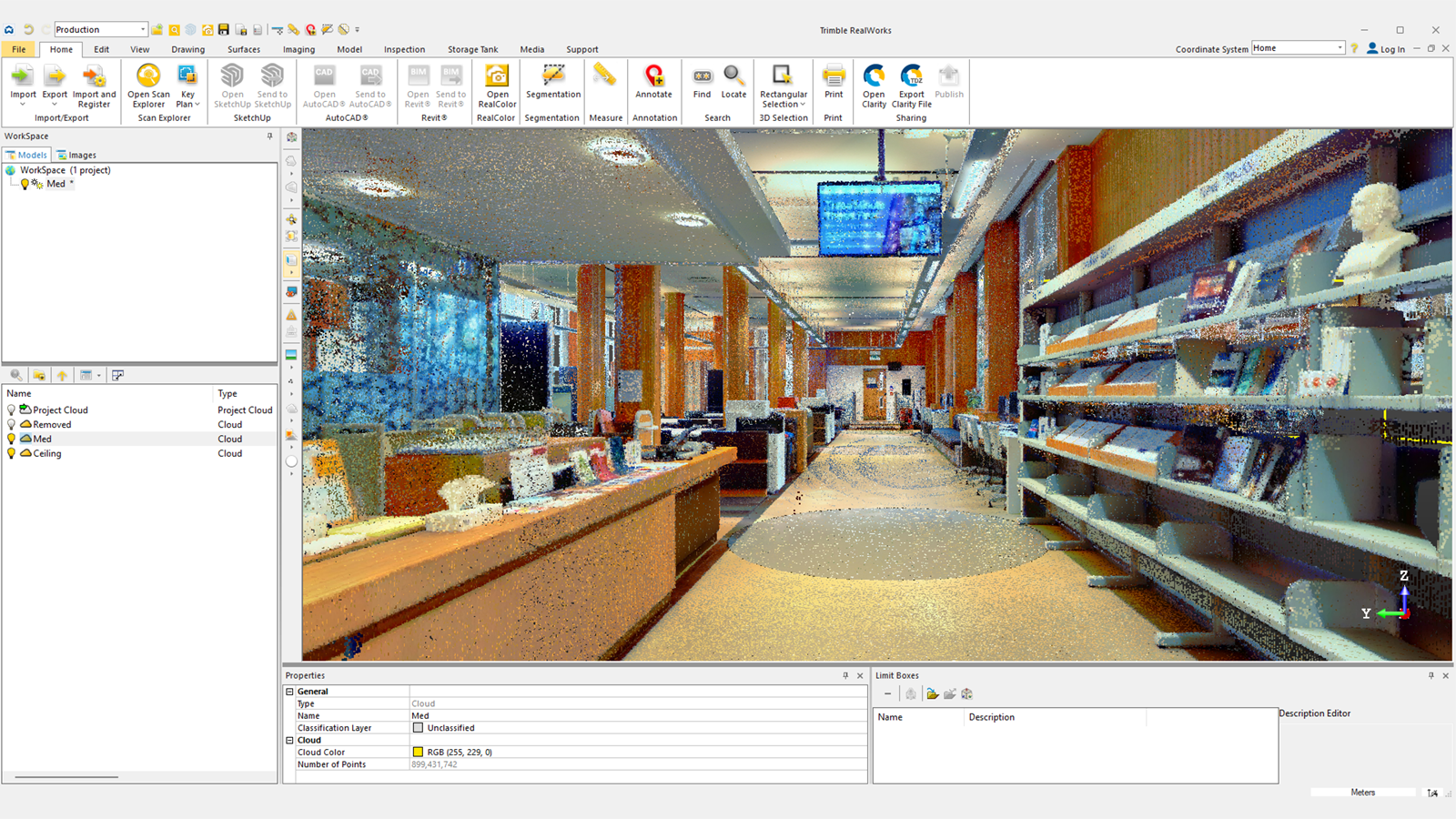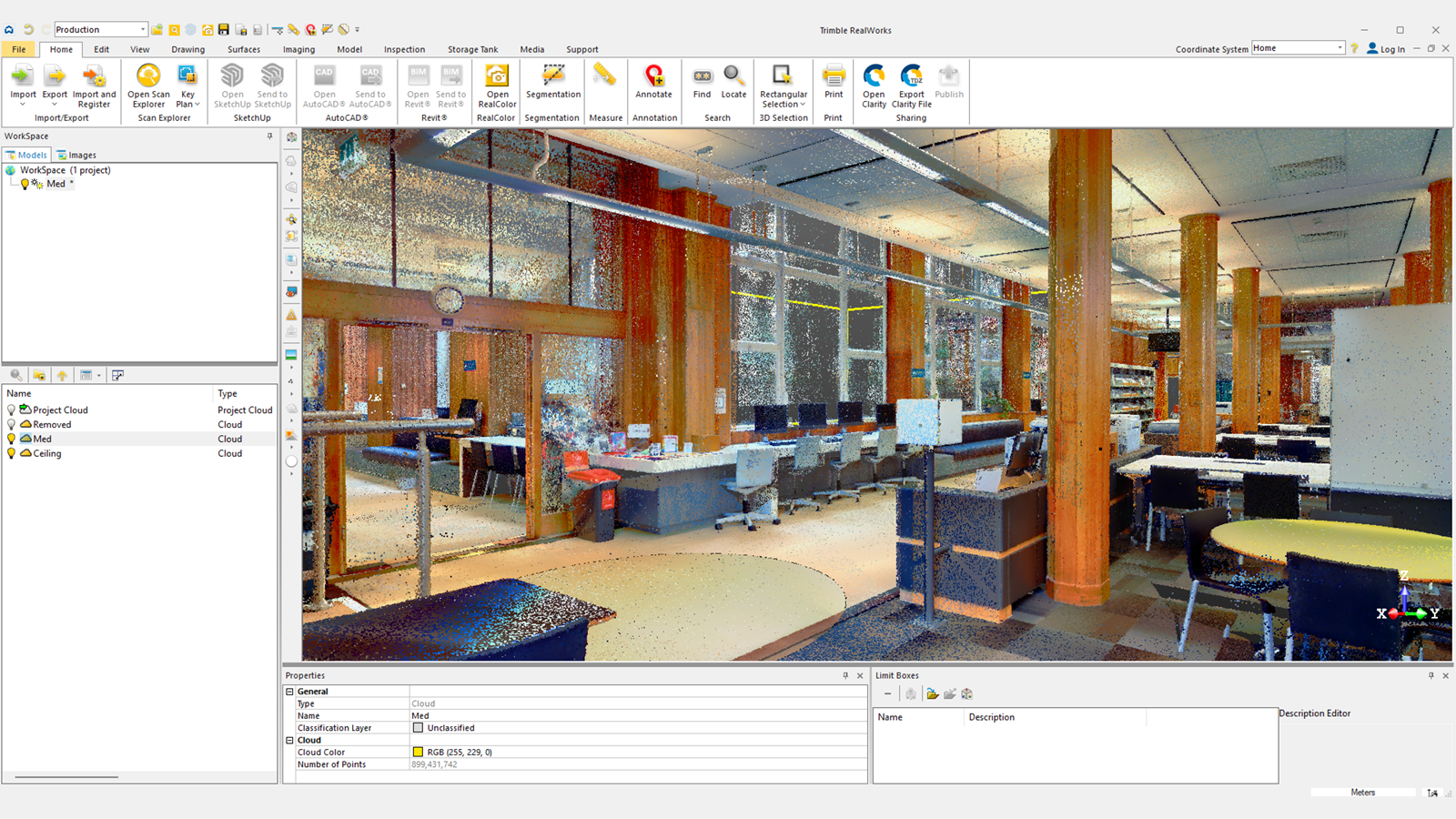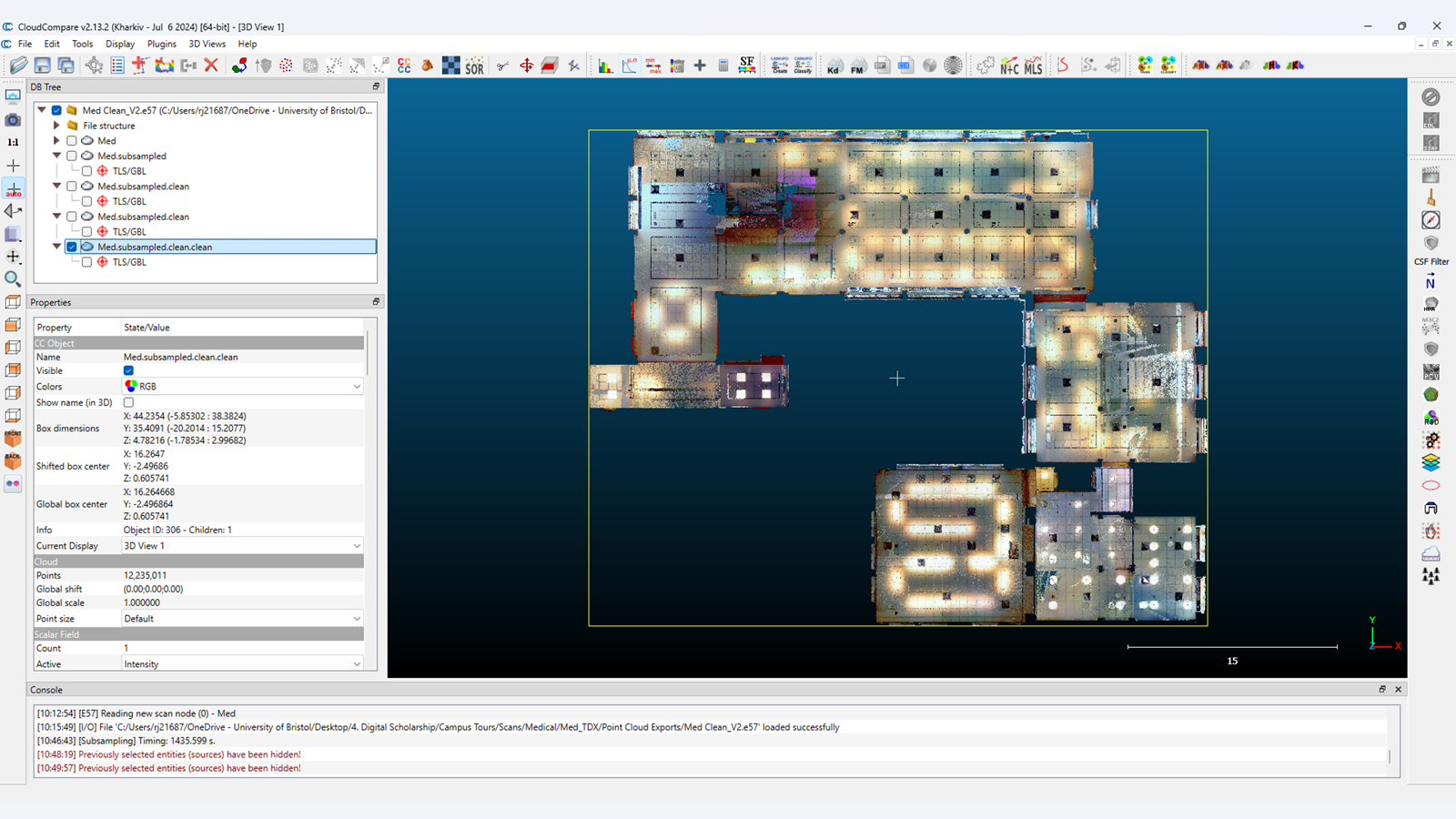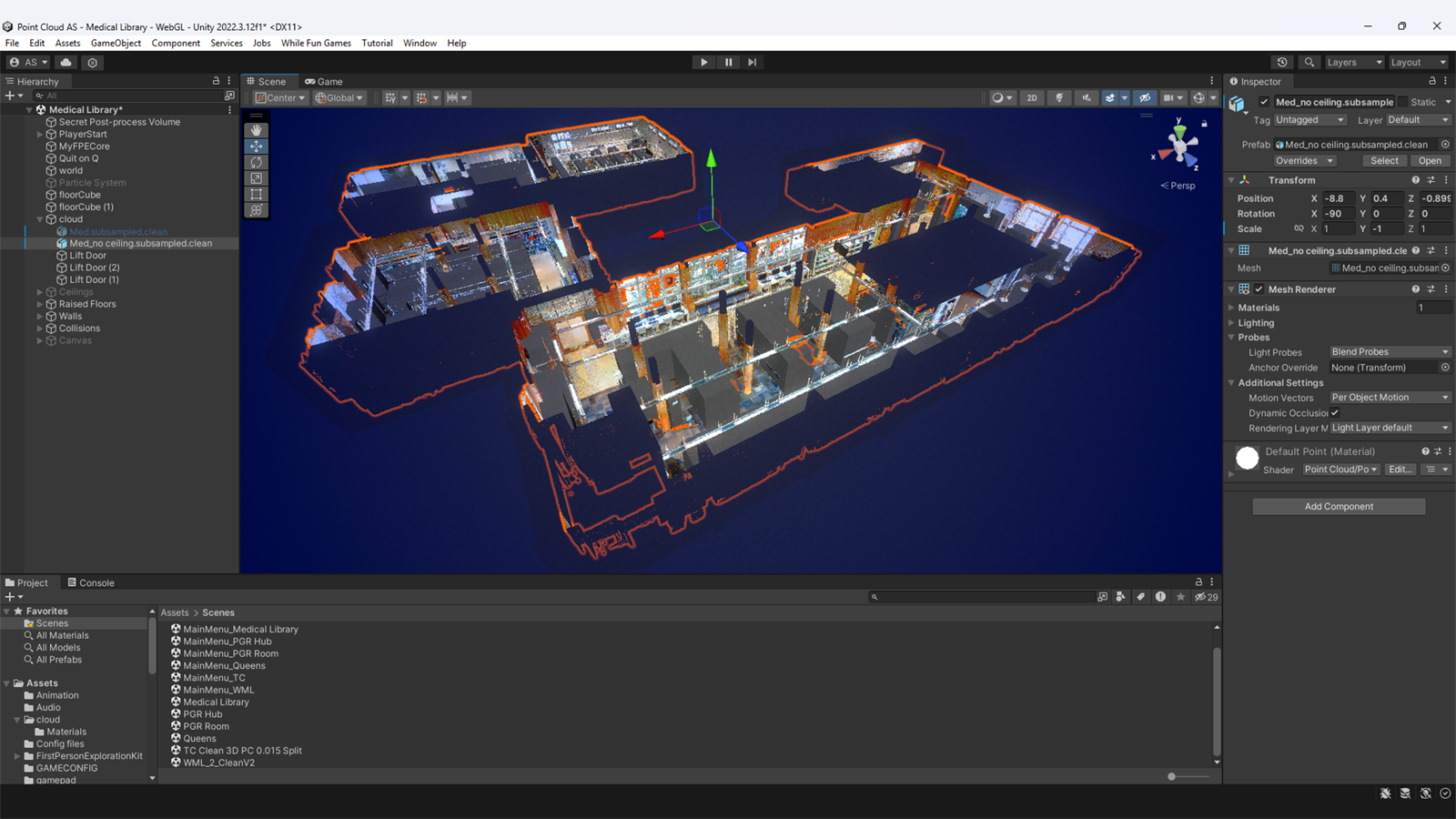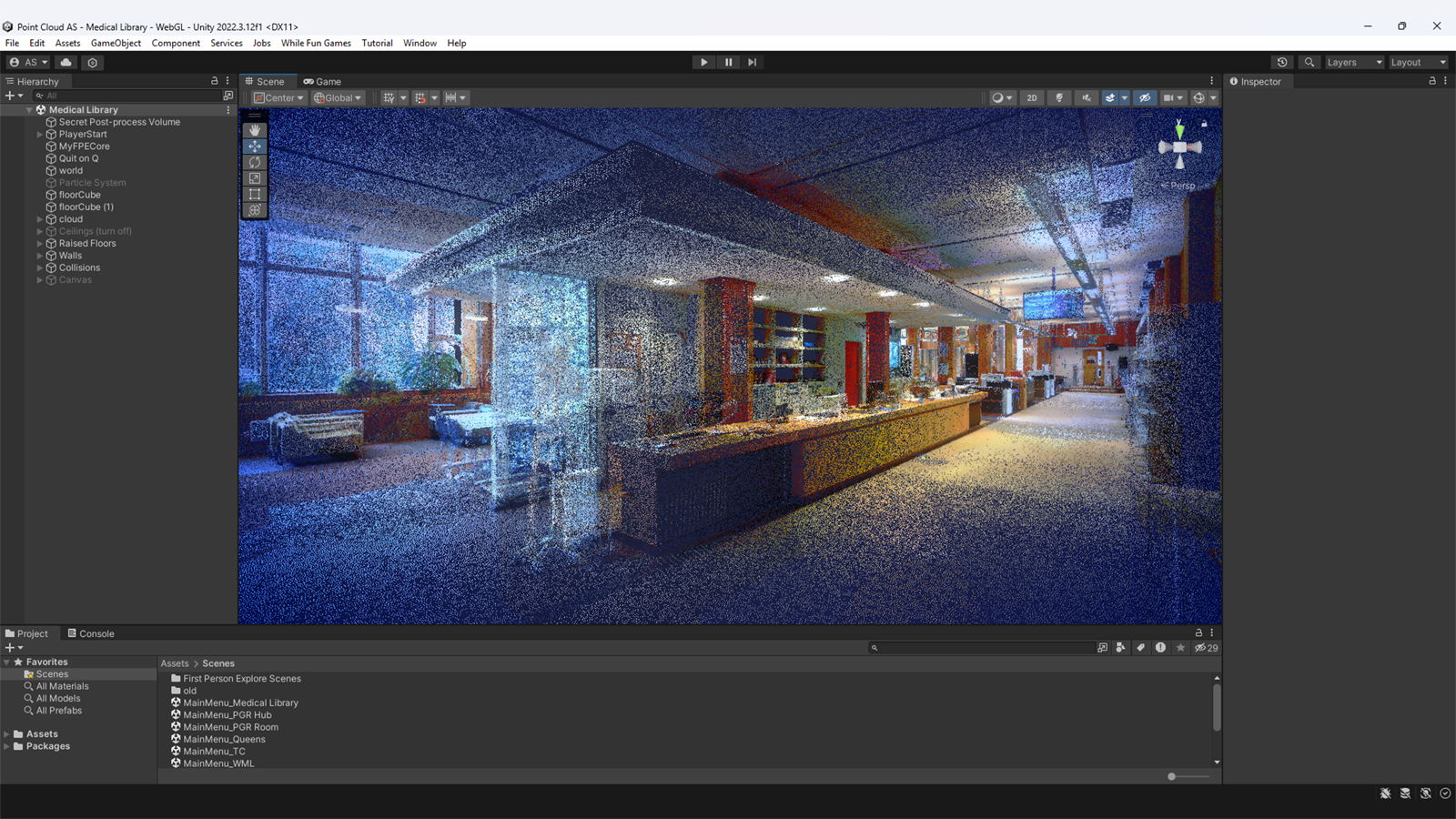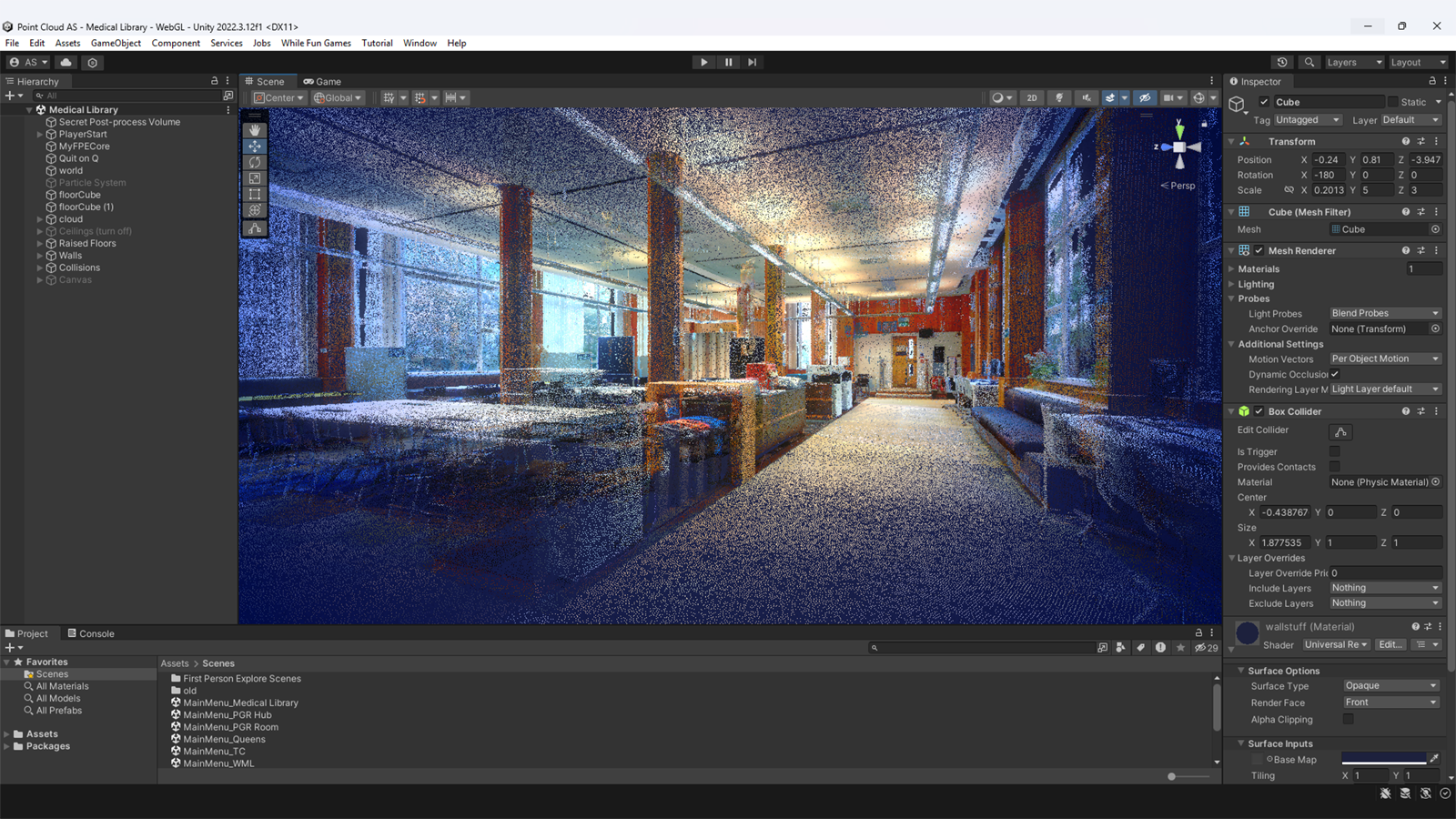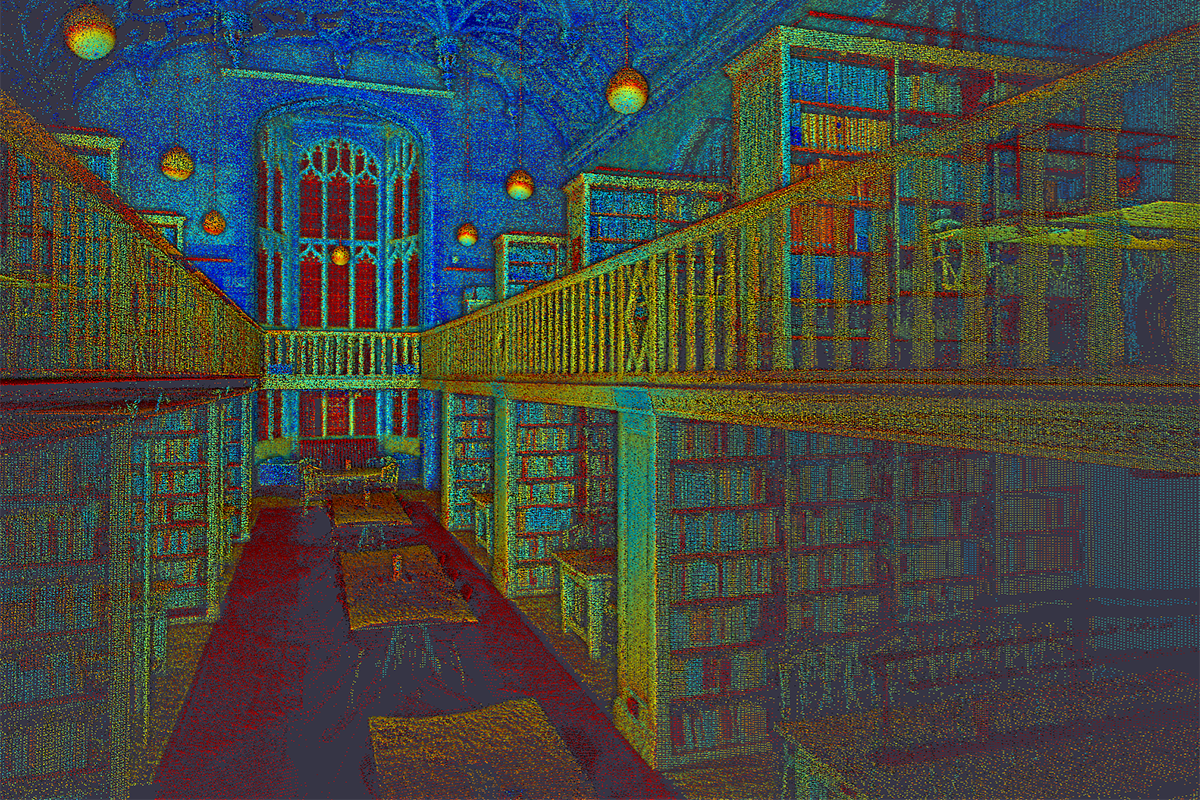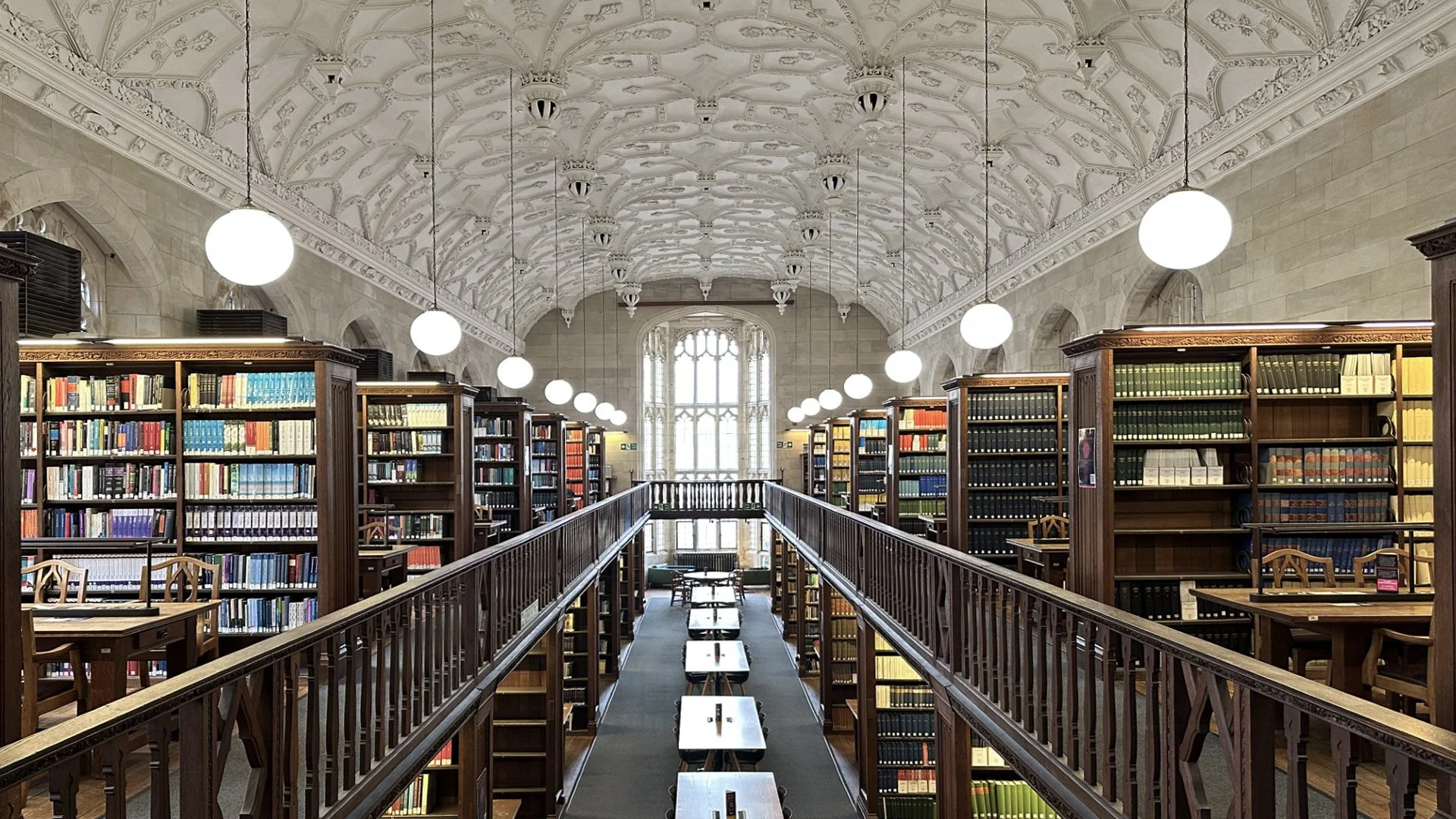
Transforming Accessibility: Capturing Library Spaces with 3D Scanning Technology
Challenge
Enabling neurodivergent students to remotely access and explore library spaces within the University of Bristol presented unique challenges. Traditional methods like 360° and standard photography lacked the interactivity and accessibility required to address diverse needs effectively.
Solution
Through advanced Trimble X9 LiDAR scanning technology, comprehensive building scans of the library spaces were conducted. The collected data was processed to create immersive virtual tours that offered fully deployable, interactive environments accessible remotely. This innovative solution allowed users to explore spaces in a more engaging and detailed manner than previously possible.
Outcome
The project successfully delivered a cutting-edge solution that set a new standard for remote accessibility in educational spaces. It empowered neurodivergent students by providing a seamless and immersive way to engage with library environments. The use of advanced 3D scanning technology showcased how innovation can overcome accessibility limitations and enhance user experiences.




